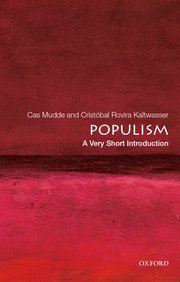“The odds look substantially bleaker for Brazilian democracy right now than they did 24 hours ago,” one expert said after left-wing former President Luiz Inácio Lula da Silva took 48.4 percent of votes in yesterday’s presidential election, compared to 43.2 percent won by far-right President Jair Bolsonaro.
Many polls had projected that support for Bolsonaro would only reach the high thirties. The candidates will face each other in a runoff on October 30, the Council on Foreign Relations reports. Bolsonaro allies performed well in congressional and local elections, with at least seven of his former ministers elected to Congress, The Times adds, including a former environment minister who oversaw surging deforestation in the Amazon and a former health minister widely criticized for his handling of the COVID-19 pandemic.
 Given Bolsonaro’s record of casting doubt on Brazil’s voting system, recruiting the military in his efforts, and undermining the country’s institutions, analysts and experts warn that his continued influence is a worrying sign for the future of the world’s fourth-largest democracy, Foreign Policy reports.
Given Bolsonaro’s record of casting doubt on Brazil’s voting system, recruiting the military in his efforts, and undermining the country’s institutions, analysts and experts warn that his continued influence is a worrying sign for the future of the world’s fourth-largest democracy, Foreign Policy reports.
“[M]ake no mistake about it, the odds look substantially bleaker for Brazilian democracy right now than they did 24 hours ago,” tweeted Filipe Campante, an international economics professor at Johns Hopkins University. “Bolsonaro will have a real shot at winning the runoff, and in that case we are in deep trouble.”
There is a strong Bolsonarist vote hidden, especially in the Sao Paulo countryside, but across the country in the smallest cities off the radar of polls, said Deysi Cioccari, a political science professor at the Pontifical Catholic University of Sao Paulo. This explains the pro-Bolsonaro result despite Lula winning in the first round.
“It’s massively dispiriting for the left,” said one observer. “And really surprising – not in terms of Lula’s vote, which is in line with what everyone thought, but in terms of Bolsonaro’s, which is significantly higher. The pollsters got that badly wrong. I went to Lula’s rally, and people were crying, or in a state of shock.”
One of the obstacles to his victory so far and a grave failing of this political veteran, is his failure to utter a mea culpa over the massive corruption that marked his latter years as president, analyst Marcelo Cantelmi asserts. People were expecting it. That, alongside a recession, became a springboard for Bolsonaro’s victory; so again, he may decide to acknowledge this before the next round.
 Bolsonaro was stronger than we imagined and it wasn’t just a survey error; it’s a lack of understanding that there is within the society an ashamed vote but for the right instead of the left. They don’t talk to pollsters, they don’t reveal what they feel but they have a great identification with Bolsonaro, adds James Green, Brown University professor of Latin American history:
Bolsonaro was stronger than we imagined and it wasn’t just a survey error; it’s a lack of understanding that there is within the society an ashamed vote but for the right instead of the left. They don’t talk to pollsters, they don’t reveal what they feel but they have a great identification with Bolsonaro, adds James Green, Brown University professor of Latin American history:
Brazil lives a myth of cordiality, joy, sympathy and it isn’t. It’s a country that has a lot of conservatives, always has, and they are growing and they don’t like those social, cultural changes that had been happening in the country. So they are supporting Bolsonaro because he represents a return to the past. Brazil’s polarization is “just like the US. The countries are increasingly alike in their political composition.”
 Brazil started this electoral period in a way never seen in our recent history, with polarisation, political violence, a proliferation of armed groups, delegitimisation of the electoral process and politicisation of the security forces, notes Carolina Ricardo, executive director of the Instituto Sou da Paz. But, at the same time, civil society is mobilised, and the institutions have kept at least some control of the electoral process, she writes for Open Democracy:
Brazil started this electoral period in a way never seen in our recent history, with polarisation, political violence, a proliferation of armed groups, delegitimisation of the electoral process and politicisation of the security forces, notes Carolina Ricardo, executive director of the Instituto Sou da Paz. But, at the same time, civil society is mobilised, and the institutions have kept at least some control of the electoral process, she writes for Open Democracy:
There are many examples: demonstrations in favour of democracy, prohibition of the carrying of firearms near voting centres and prosecutors overseeing police. And the minister of the Supreme Court, Alexandre Moraes – now also president of the Superior Electoral Court, the institution responsible for conducting the electoral process – met with state commanders of the military police to ensure the security of the elections.
But it would be unwise to assume that such measures could stop ‘Brazil’s Trump’ from trying to hold on to power by any means possible, Ricardo concludes. RTWT
The country is already in the middle of a wave of political violence that has included at least 45 deaths so far this year, POLITICO’s Ryan Heath observes.
The elections provide a test for the resilience of Brazil’s democratic institutions, several experts – including the National Endowment for Democracy’s Latin America Director Miriam Kornblith – told the Atlantic Council.
 Cas Mudde, a leading expert on populism and the radical right, wrote in a sobering thread on Twitter that the result was the “worst possible Lula victory”, and that while he still expects Lula to prevail, the margin is likely to be small – or could be reversed if anything unexpected happens that favors Bolsonaro in the next few weeks, The Guardian reports.
Cas Mudde, a leading expert on populism and the radical right, wrote in a sobering thread on Twitter that the result was the “worst possible Lula victory”, and that while he still expects Lula to prevail, the margin is likely to be small – or could be reversed if anything unexpected happens that favors Bolsonaro in the next few weeks, The Guardian reports.
Bolsonaro has questioned Brazil’s electronic voting machines for years, despite the fact that there has been no evidence of widespread fraud in the system since Brazil began using it in the late 1990s, The Times reports:
Four days before Sunday’s vote, his political party released a two-page document that claimed, without evidence, that some government employees and contractors had the “absolute power to manipulate election results without leaving a trace.” Election officials called those claims “false and dishonest” and “a clear attempt to hinder and disrupt” the election. A day later, at the final debate before Sunday’s vote, Mr. Bolsonaro was asked directly if he would accept the election’s results. He did not answer.
“If Bolsonaro wins another term in office, the world’s biggest rainforest could pass its tipping point. If he loses, we have the chance to bring it—and Brazil—back from the brink,” Instituto Socioambiental’s Adriana Ramos tells The Guardian.

Credit: Wilson Center
“The run-off is going to be very tight. The right is doing better than expected, especially in São Paulo,” Eduardo Mello, a political scientist at the Getúlio Vargas Foundation, told the Financial Times:
Nine of Bolsonaro’s former cabinet ministers won election to congress. Fears will now grow of a messy and contested outcome following the second round result. Bolsonaro has frequently attacked the integrity of the country’s electronic voting system, calling the polls “worthless” and saying he trusted “data from the people”, in a nod to his large, raucous campaign rallies.
Bolsonaro reportedly tried to load the dice by directing government funding in ways designed to win favor with voters — moves that experts say are illegal and that have tainted the upcoming elections, adds Harvard’s Fernando Bizzarro, the author of “Party Strength and Economic Growth” (World Politics, 2018).
For example, in July, Bolsonaro pushed through Congress an expansion of cash transfers to the poor, he writes for The Post’s Monkey Cage blog. To circumvent constitutional provisions that barred incumbents from expanding welfare payments in the months before an election, the government declared a state of emergency — allegedly because of the war in Ukraine. Critics denounced the cash handouts as a pre-election move to draw support from the Brazilian poor, who support Lula by a 2 to 1 ratio.
 Lula is still the favorite to win the runoff. But Bolsonaro has shown that his support makes a big differences for candidates for Senate, Governor & Congress, FGV University’s Oliver Stuenkel tweeted. That will make it harder for center-right politicians to challenge Bolsonaro’s hegemony over Brazil’s right.
Lula is still the favorite to win the runoff. But Bolsonaro has shown that his support makes a big differences for candidates for Senate, Governor & Congress, FGV University’s Oliver Stuenkel tweeted. That will make it harder for center-right politicians to challenge Bolsonaro’s hegemony over Brazil’s right.
“Whether or not Bolsonaro loses, the far-right in Brazil is alive and well-established,” the Peterson Institute for International Economics’ Monica de Bolle tweets.
Has Bolsonaro released a flood of guns to overwhelm Brazil’s democracy? https://t.co/V6bZj2k7Sb
— Democracy Digest (@demdigest) October 3, 2022







